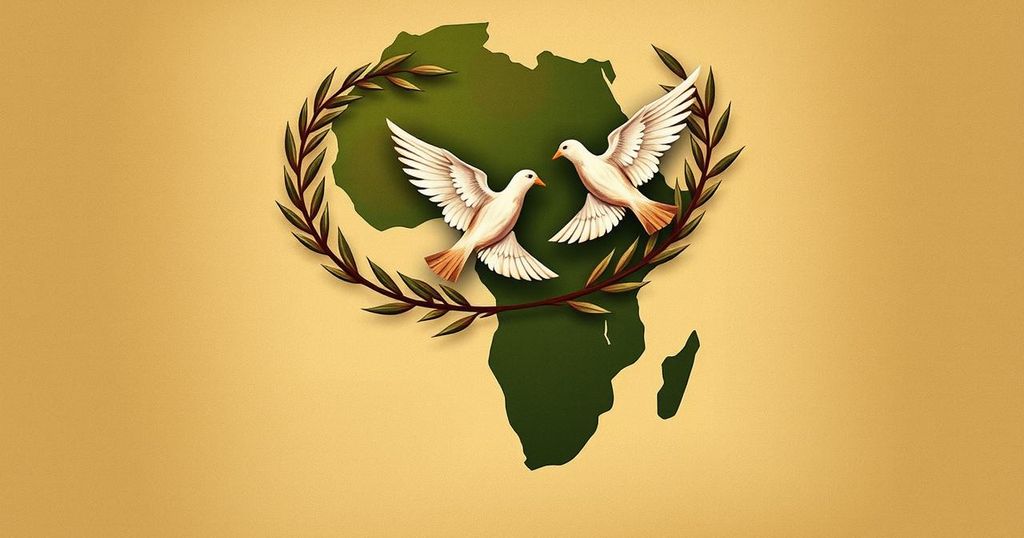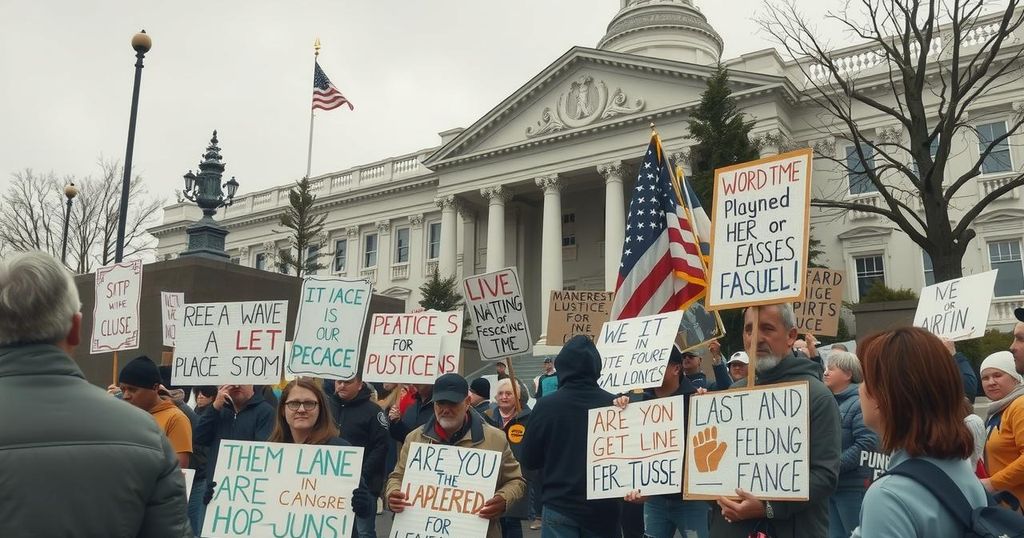The M23 armed group, with Rwandan support, resumed offensives in Eastern DRC, seizing a mining town and breaking a declared ceasefire. The conflict has escalated, causing significant casualties, with concerns over wider regional implications growing. Diplomatic solutions are being sought, amid fears for local populations and international calls for more decisive action.
On Wednesday, the M23 armed group, accompanied by Rwandan troops, initiated a new offensive in eastern Democratic Republic of Congo, contradicting a previously declared unilateral ceasefire. Reports indicate that they seized a mining town in South Kivu, despite the M23 asserting it would not take control of Bukavu or nearby areas. Clashes erupted at dawn between the M23 forces and the Congolese army, highlighting the tense and unforgiving nature of the conflict, which has continuously escalated over the past three years.
The M23 fighters captured the mining town of Nyabibwe, situated approximately 100 kilometers from Bukavu, intensifying the conflict in the region. Congolese government spokesman Patrick Muyaya remarked that the recent actions were indicative of the ceasefire being nothing more than a deceptive tactic. The violence has resulted in significant casualties, with reports of at least 900 fatalities and thousands more wounded during the clashes in Goma.
International organizations, including the United Nations and the International Criminal Court, expressed concern over the rising violence and the potential for broader conflict. Diplomatic efforts are underway to address the escalating situation, with regional leaders and mediators such as Angola and Kenya actively seeking resolutions. The upcoming summit involving the Congolese and Rwandan presidents is aimed at discussing strategies to mitigate the ongoing crisis.
Meanwhile, residents of Bukavu are increasingly anxious about the conflict’s proximity, as shown by a recent prayer service organized by local women seeking peace in the volatile environment. There is widespread frustration with the perceived lack of decisive international action in response to the humanitarian crisis and ongoing violence. Interestingly, neighboring countries have begun to bolster their military preparedness against the potential spillover effects of the conflict, indicating a heightened state of alert in the region.
In light of these developments, it is essential to acknowledge the economic motivations behind the violence, as Eastern DRC is rich in valuable minerals crucial for global technology manufacturing. Despite Rwanda’s denials of direct military involvement, allegations persist regarding its support for the M23. Additionally, the Rwandan government cites concerns over the DRC’s alleged support for armed groups such as the FDLR, reflecting the complexity of the regional conflict that continues to threaten peace and stability.
The conflict in the eastern Democratic Republic of Congo has persisted for over three decades, fueled by a mix of armed groups, regional interests, and resource exploitation. The M23 group, which has been backed by Rwanda, has engaged in multiple offensives against the Congolese government, leading to a cycle of ceasefires that have repeatedly broken down. This ongoing violence has tragic humanitarian consequences, with significant casualties reported during skirmishes. The international community has shown increasing concern, but effective responses remain elusive, leaving local populations in a state of fear and instability.
The recent offensive by M23 forces and their Rwandan allies marks a worrying escalation in an already volatile situation in Eastern Congo, threatening the safety of residents and the stability of the region. As military engagements intensify, diplomatic efforts are imperative to address the underlying causes of the conflict and to seek a sustainable peace. The international community must transition from mere declarations to actionable support to aid those affected by this prolonged crisis.
Original Source: www.wyomingnewsnow.tv




